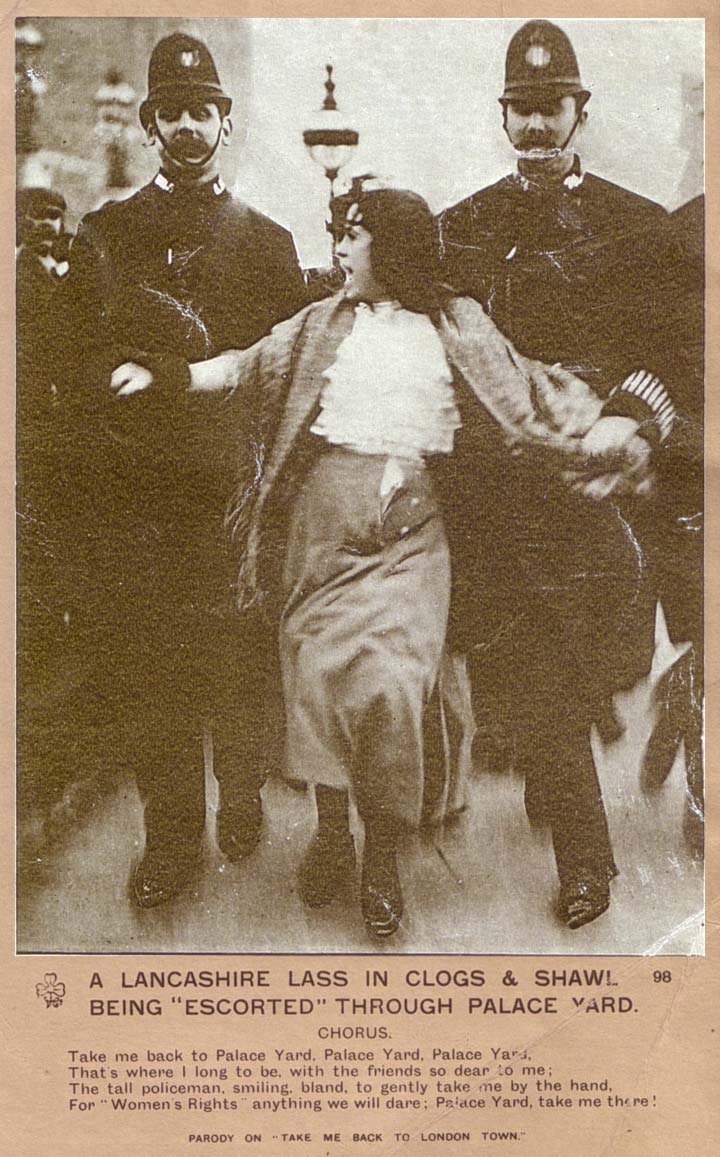'Someone Struggled For Your Right To Vote. Use It'
The struggle
The few terse words above are from Susan B Antony (1820-1906), the American social reformer and women’s rights activist. She worked tirelessly, travelling miles, organising petitions, giving speeches, and promoting women’s suffrage. Her name may not be as familiar to us as those of the Pankhursts and Millicent Fawcett, but her words here are crisp and accurate. Women’s struggle for voting rights took years and years, with abuse, pain and hardship along the way. The fight for suffrage has been well documented, and it’s unusual to find anyone who has not heard about the suffragetttes. So one might think that a decision NOT to vote should be unthinkable. But millions of people who are eligible to vote in the GE on July 4th will not be putting pencil to ballot paper.People may decide not to vote because of apathy, disillusionment, anger or despair - all these may play a part, and there is much to be explored to understand the current sense of malaise that some people feel. But for many, the right to vote is precious. For example, in 2018, on the anniversary of women’s right to vote, a range of women were asked what their vote meant to them. Here are two responses:
‘As a woman I feel it is my right and responsibility to vote - however frustrated or despondent I might feel at times with the political system. Using my vote is a responsibility to past generations of women whose actions and sacrifices meant that I can go to the polling booth, put a cross in one of those boxes, and for this cross to count. But I also feel a sense of duty to women of today and to future generations of women because the decisions made by those in power affect women's lives differently - and in most cases adversely.’ Dr Kim Allen
‘As a young, ethnic minority, visibly Muslim woman I would say that women’s right to vote is hugely important, as it contributes towards underlining the presence of women as an active part of society and the political process. Nonetheless, the right to vote is not the end point, rather going forward there should be greater emphasis on the meaningful political representation of women and involvement in the political decision-making process.’ Amina Easat-Daas
A cross on a ballot paper can turn the world upside down. Authoritarian governments and organised criminal gangs know this, which is why they deploy all kinds of ruthless tactics to prevent free and fair elections. In much of the world the struggle continues.
The act of voting
For many of us, the rituals of polling day have been with us since childhood – particularly if we had a day off school because the premises were needed! The black and white notices, the hushed atmosphere, the stubby pencils, the mysterious box for ballot papers, the dogs tied up outside, the tellers vainly trying to collect information – all part of a traditional set up that does not quite equate with our world of mobile phones and artificial intelligence. Today there are some odd mismatches in voting procedures. You can register online with your address and NI number, but the ID that you must now produce has to be hard copy – screenshots are not acceptable. It’s also a little trickier if you don’t have a passport or a driving licence.Milton Keynes Fawcett Group – An update on our campaign
When the last MK Fawcett blog was published in May, the general election had just been announced, and all was turmoil as parties and candidates positioned themselves. Now, close to polling day, you may feel that all is still turmoil, or farce, or interesting, or scary – with the media keen to take us down all kinds of rabbit holes.But Milton Keynes Fawcett Group members have been taking a strong and positive stance. We are campaigning for ‘A safer, healthier and fairer Milton Keynes for all women’
We have:
- Produced a leaflet with information about voting procedures, priorities and questions to ask candidates. You can see the leaflet here.
- Encouraged people to register to vote.
- Contacted all election candidates, via their agents, to inform them of our campaign.
- Collected hundreds of signatures from residents of Milton Keynes who agree that we need a ‘Safer, healthier and fairer’ city.
- Had many conversations with people, including community groups, members of walking groups, college students, special interest groups, community larder members and individual MK citizens.
- Attended hustings where candidates from all parties have been invited to speak.
- Collected relevant data and evidence to support the need for a ‘Safer, healthier and fairer’ Milton Keynes.
We will keep you posted!



.png)
.png)
